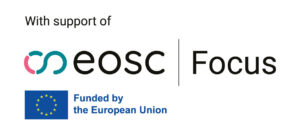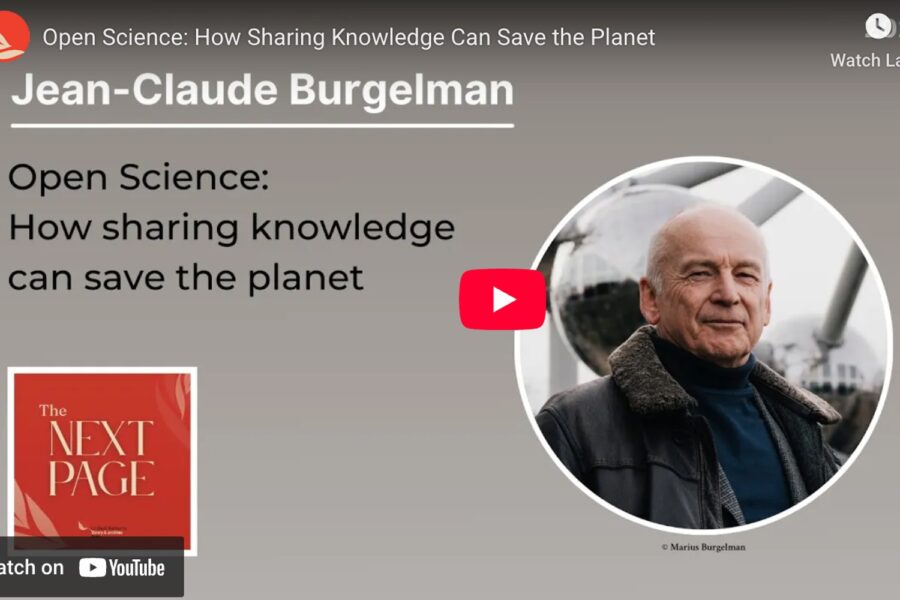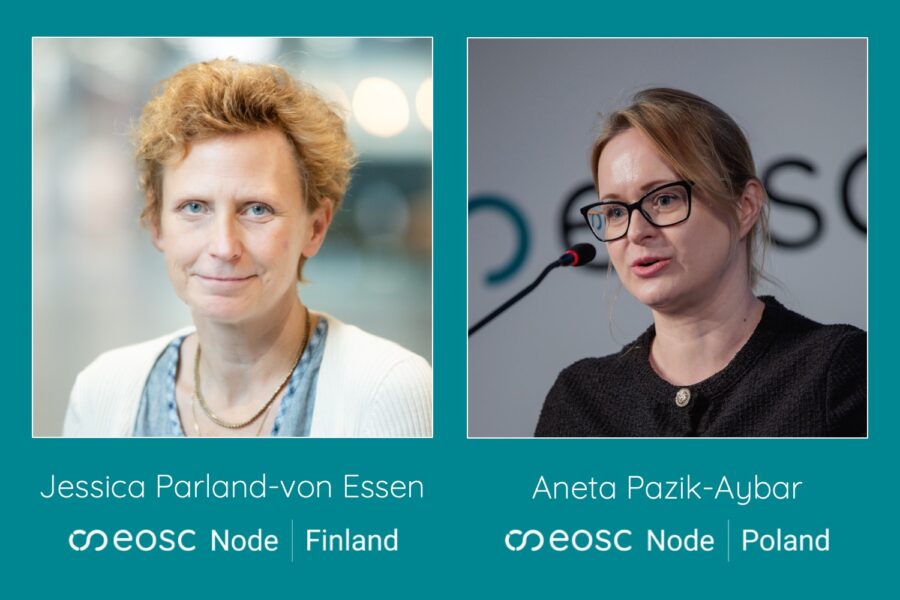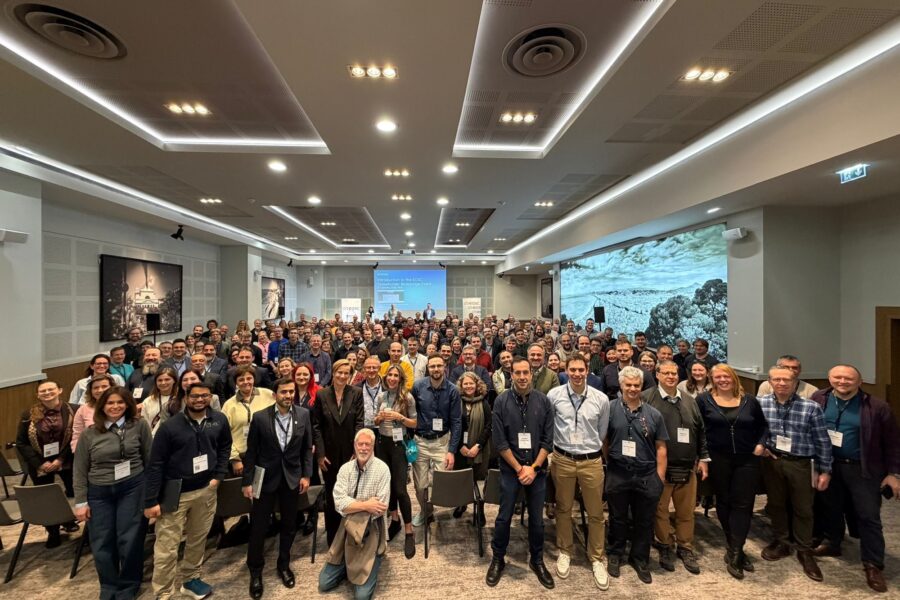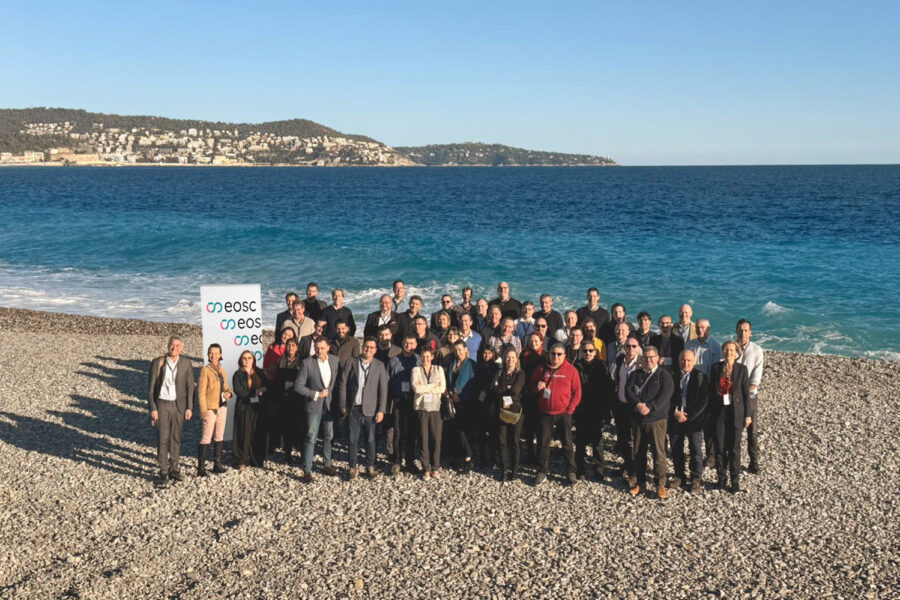Germany’s EOSC Association (EOSC-A) Mandated Organisation, the German National Research Data Infrastructure (NFDI), organised the first EOSC-A National Tripartite Event in Karlsruhe, Germany on 24 November. The host of the event, NFDI Director York Sure-Vetter, and the moderator, journalist Jan-Martin Wiarda, opened the day by welcoming the more than 120 participants. First on the agenda was a keynote presentation by Mario Brandenburg, Parliamentary State Secretary to the German Federal Minister of Education and Research (BMBF). Brandenburg highlighted NFDI as the main contribution of the Federal Republic of Germany to EOSC and presented his conviction that “the only way to make use of the value of data is if we work together and join forces.”
In the first part of the meeting, speakers emphasized the importance of Open Science and the need for collaboration between National Structures (mainly responsible in Member States for the implementation of Open Science policies and practices) and EOSC Mandated Organisations (the MS/ACs main links to the EOSC Association). Anna Panagopoulou, head of the European Commission’s DG RTD Directorate for ERA & Innovation, pointed at the shared responsibility in realising the transition of science towards openness.
Karel Luyben, president of the EOSC Association, meanwhile invited all EOSC stakeholders to seize the current momentum to make his dream that 50% of relevant research data worldwide is FAIR by 2040 a reality. To achieve his dream, he emphasized the need for EOSC to join forces with European and global initiatives. The need for closer links among initiatives was shared by Lars Bernard from the German Council for Scientific Information Structures (RfII) as key to overcoming the lack of long-term perspectives for infrastructures or funding, and therefore as key for the success of Open Science, including industry-led initiatives, especially Gaia-X. Lastly, Kathrin Winkler from the German Research Foundation (DFG) emphasized the need for “vertical collaboration” for the development of science policy and funding strategies at institutional, national, European and global levels, as well as “horizontal collaboration” on the rules and information infrastructures for research data.

The event moved then to introduce the NFDI-sections which are working on similar topics as the EOSC-A Task Forces. The spokespersons of the sections gave an overview of their possible contributions to EOSC, but also formulated their expectations of EOSC.
The event concluded with a lively panel discussion, moderated by Jan-Martin Wiarda, and featuring Roland Bertelmann (Head of Helmholtz Open Science Office), Ute Gunsenheimer (EOSC-A Secretary General), Andrea Herdegen (BMBF and EOSC Steering Board), Raphael Ritz (Head of Data Division at the Max Planck Computing and Data Facility) and York Sure-Vetter.
The discussion highlighted again the importance of a collaboration between NFDI and EOSC to connect the national efforts in Germany to the European initiatives and beyond, and stressed the mutual benefits this brings for policy making, funding and development. Cooperation is also key to facing the challenges on governance and differences in pace of development, both within a country but also across countries. It was agreed that bringing together different communities and stakeholders, from researchers to national or European funders, is essential as research is a global endeavour not bounded by national borders.
The full EOSC-A Tripartite Event Germany can be watched here.


